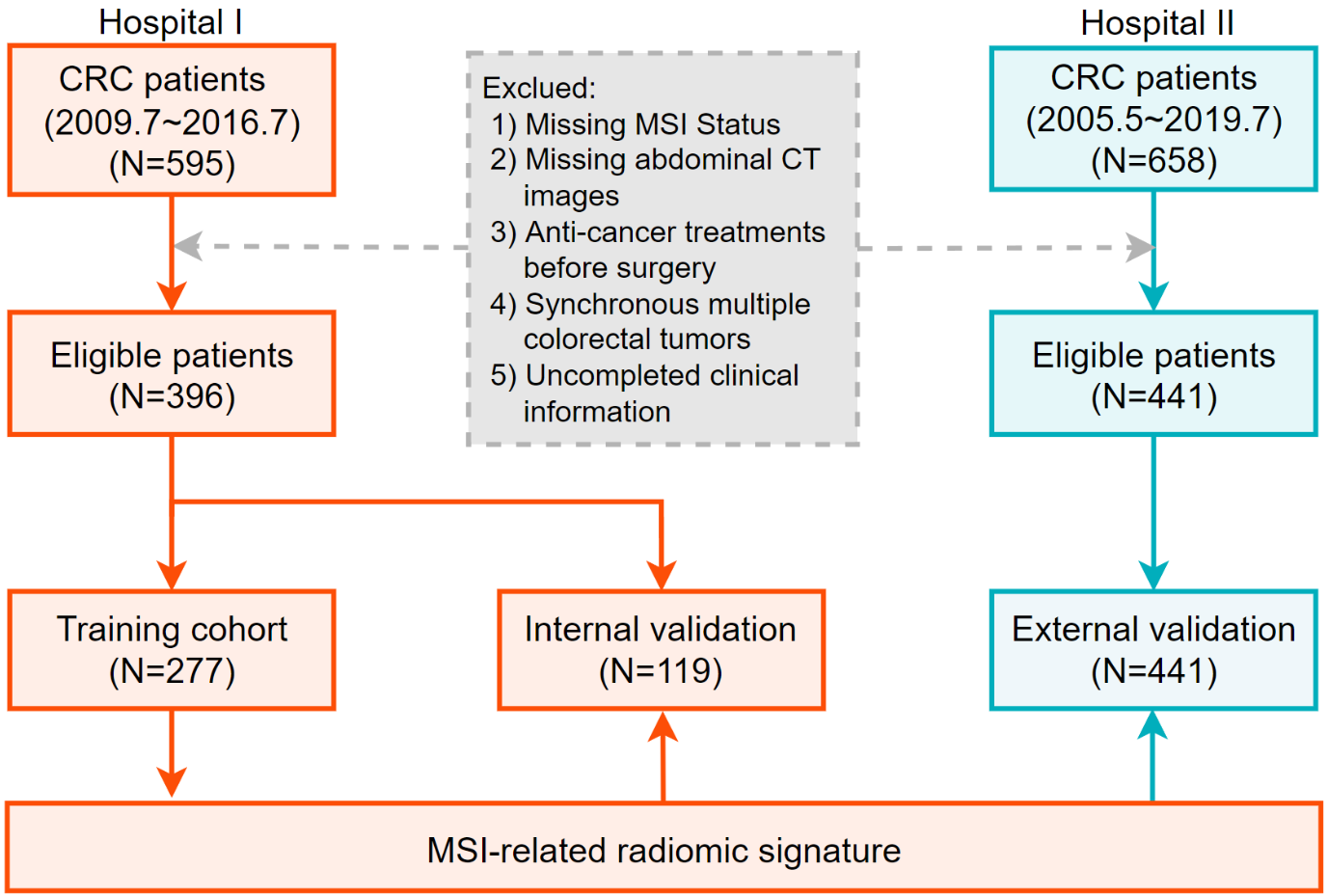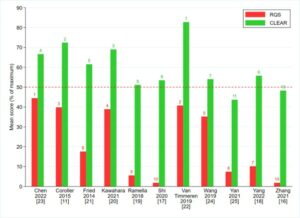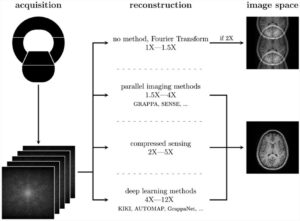The goal of this study was to establish a CT-based radiomics signature in order to predict microsatellite instability (MSI) status in patients with colorectal cancer (CRC). Through data from 837 CRC patients from two hospitals who underwent preoperative enhanced CT and had available MSI status data, the authors were able to build a robust radiomics signature for the identification of MSI status in CRC patients, which may be able to assist in personalized treatment decision in the future.
Key points
- Our well-designed modelling strategies helped overcome the problem of data imbalance caused by the low incidence of MSI.
- Genetic algorithm–enhanced artificial neural network–based CT radiomics signature can effectively distinguish the MSI status of CRC patients.
- Kaplan–Meier survival analysis demonstrated that our signature could significantly stratify stage II CRC patients into high- and low-risk groups.
Authors: Xiaobo Chen, Lan He, Qingshu Li, Liu Liu, Suyun Li, Yuan Zhang, Zaiyi Liu, Yanqi Huang, Yun Mao & Xin Chen













